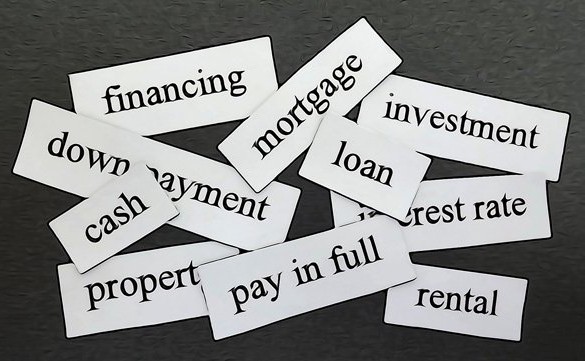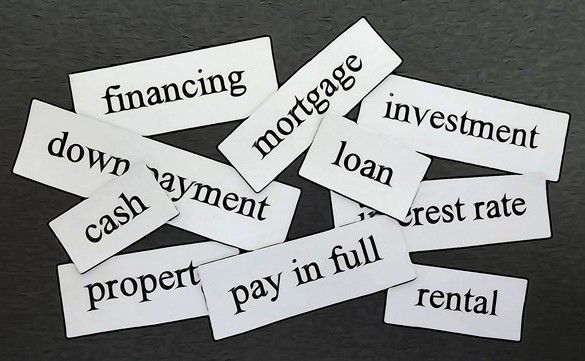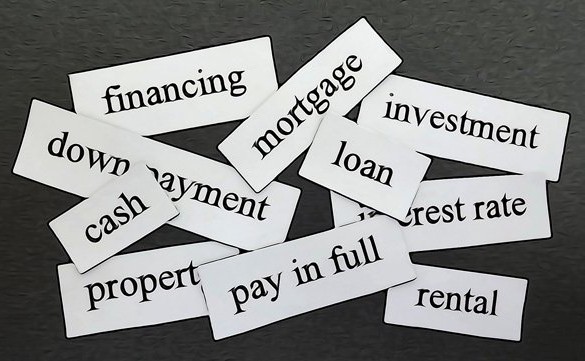
Times are rough and in California fewer people than ever can succeed in persuading the banks to lend them a mortgage. Others fail to convince the banks to help them invest. And then there are people who need funds for flipping or to stave off a bankruptcy or imminent foreclosure, to repay a debt or for other expensive ambition. In these cases, these and similar prospective borrowers set off on the hunt for a private lender, bridge investor, or hard money lender.
Hard money loans California come with their pluses and minuses. They’re far from simple. Borrowers are taking a risk since they’re dealing with private rather than bank-regulated loans. To the borrower who is aware of that and still wants to proceed, I hope that this post will help you in giving you some tips on how to ask for and receive your loan.
Here goes…
1. Write a detailed list of your needs for a hard money loan and the specific amount of money that you want.
2. Locate hard money lenders California online. Use the Scotsman’s Guide and other resources to find hard money lenders. A directory of hard money lenders in California can be found on the reliable Bigger Pockets website, on HardMoneyHunt.com or MoolahList.com. The Private Money Lending Guide also has a directory of hard money lenders in California who will assist you in getting a hard money loan.
3. Schedule an appointment with a hard money lender such as HML Investments.com. Review their website to see their conditions, terms, loans, and other details so that you can evaluate whether or not they are a good match for you. Compare with other companies so that you select someone whom you think best suits your requirements. Convinced? Fill out their online form/s and schedule an appointment.
4. In the hard money lending scenario, you’re going to be processed a loan based on how attractive the investor (and his fellow investors) consider your property or collateral to be. You’re a salesman so deliver your pitch accordingly. Inform the loan officer of your situation and tell him the amount of money that you need. Be prepared to explain your reasons and even to specify how you intend to use that money. You may also want to consider presenting documents such as architectural plans for the property, detailed budgets for construction, and your contractor bid sheets for repairs and renovations.
Here are some things that you’ll want to reassure your investor:
a. That the property and the location are a safe investment.
b. That the value of the neighborhood and your particular property looks good (projections for growth are attractive; the market in this neighborhood is ‘looking up’; properties in this neighborhood are in demand). Websites such as zillow.com, trulia.com and realtor.com will help you find this information. succeeded in real estate projects in the past.
c. That you have a work history that will help you succeed. Preferably, that you have
5. Present a clear financial plan to your investors. Your hard money lender may fund 60- 70% of the after-repair-value (ARV) of the home; you will be responsible for funding the additional 30-40% of the cost. Can you come with that money in hand? That would be lovely! You’d almost certainly get the loan. (If impossible, the lender may put a lien on another property that you own.)
6. Have all documents in hand – Yes, lenders largely focused on the value of your collateral but they’re certainly not going to take the risk of plunking their money in a stranger. They’ll want to know whether they can trust you. So you’re going to have to convince them with hard facts. This includes forms such s W-2s, pay stubs, bank statements and other items in your credit history. Have them all handy.
7. Expedite your submission of documents. Hard money loans are reviewed on a case-by- case basis but most borrowers are pressed to receive them. You may find yourself in that same situation. In that case, you can forward the process by promptly replying to information requests from your lender to avoid any delays. You’ll also want to act fast in forwarding all details about your property and income. Make sure that they’re accurate and thorough.
8. Most important – Protect yourself legally. You may pat yourself on the back that you’ve won the money but what if you’ve unknowingly got the sour end of the deal. Few want that to happen to you! Good idea would be to review the terms of the loan with your lawyer before you sign a dot of the paperwork. Private investors are largely allowed to go their own way. They make their own terms. You want these terms to be mutually pleasing. You’ll certainly want to make sure your legal interests are protected. Verify all
fees – plus hidden costs – and ask for a detailed repayment schedule, otherwise known as an Amortization Table. Absence of that and omission of detailed fees may be red flags warning you to seek another lender.
9. Remain in touch with your lender. Hard money lenders California want proof that you’ll follow through. They have less moola than the banks and are likely to transfer your funds to another client if they fail to hear from you. In short, calls promptly and give them the information they need in a timely manner.










